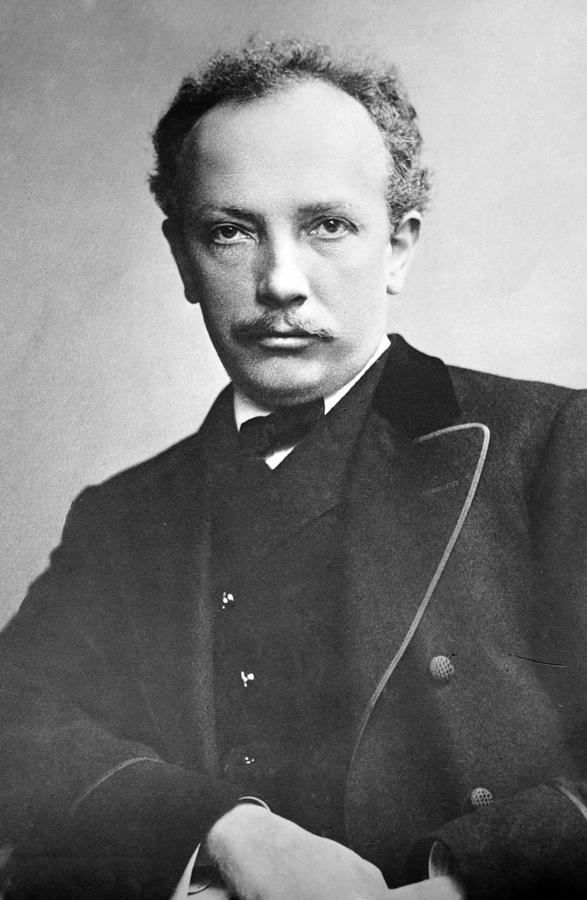Richard Georg Strauss
(11 June 1864 – 8 September 1949)
This programmatic German composer is considered the last of the great Romantics; but he also experimented with modernism. Born in Munich, the son of a horn player in the Court Opera, he began composing at the age of six. His Concerto for Violin and Orchestra in D minor was performed when he was only seventeen. At twenty-one he became the conductor of the Meiningen Orchestra and later became junior conductor at the Munich Opera and then chief conductor at Berlin's Royal Opera. In his twenties, he began to turn toward a more uninhibited romantic expression in the tradition of composers like Liszt and Wagner. His principal vehicle became the "tone poem" in which he sought to tell specific stories through a more expressionistic style that often incorporated different sections to reflect events in the story. As he began to compose operas, he also experimented with more dissonant musical forms. He spent twelve years conducting in Berlin, during which time his composing dwindled considerably. Later in life, he had a resurgence with more mature classically inspired works. During the years of the Nazi regime, he tried to remain apolitical; while seeking to protect his Jewish daughter-in-law and grandchildren. He was dismissed from his post as president of the Reichsmusikkammer, the State Music Bureau, for his disregard for 'aryan purity'. He wrote in his private diary: "The most terrible period of human history is at an end, the twelve year reign of bestiality, ignorance and anti-culture under the greatest criminals, during which Germany's 2000 years of cultural evolution met its doom." At the end of his life, he was considered the greatest composer of his time. He would consider: "I may not be a first-rate composer, but I am a first-class second-rate composer."
Also sprach Zarathustra, Op. 30
Don Quixote, Op. 35
Till Eulenspiegel's Merry Pranks
Ein Heldenleben
Tod und Verklärung, Op.24
Metamorphosen
Der Rosenkavalier
Salomé
Dance of the seven veils
Salomé
Eine Alpensinfonie
Four Last Songs

No comments:
Post a Comment